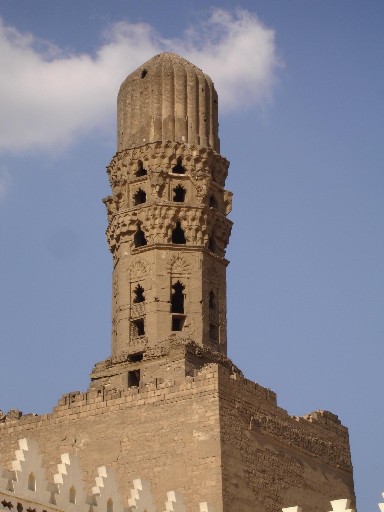|
1020s
The 1020s was a decade of the Julian Calendar which began on January 1, 1020, and ended on December 31, 1029. Significant people * Al-Qadir caliph of Baghdad * Al-Hakim bi-Amr Allah caliph of Cairo * Henry I of France * Avicenna Ibn Sina ( fa, ابن سینا; 980 – June 1037 CE), commonly known in the West as Avicenna (), was a Persian polymath who is regarded as one of the most significant physicians, astronomers, philosophers, and writers of the Islam ... References {{DEFAULTSORT:1020s ... [...More Info...] [...Related Items...] OR: [Wikipedia] [Google] [Baidu] |
Al-Qadir
Abu'l-Abbas Ahmad ibn Ishaq ( ar, أبو العباس أحمد بن إسحاق, Abu'l-ʿAbbās Aḥmad ibn Isḥāq; 947/8 – 29 November 1031), better known by his regnal name al-Qadir ( ar, القادر بالله, al-Qādir bi’llāh, Made powerful by God), was the Abbasid caliph in Baghdad from 991 to 1031. He was the grandson of al-Muqtadir, and was chosen in place of the deposed caliph, at-Ta'i, his cousin. His reign was marked by the strengthening of the Abbasid caliphate's role as the champion of Sunni Islam against Shi'ism, notably through the Baghdad Manifesto of 1011, and through the codification, for the first time, of Sunni doctrines and practices in the , thereby presaging the " Sunni Revival" later in the century. Early life Abu'l-Abbas Ahmad, the future al-Qadir, was born on 28 September 947 in Baghdad. His father Ishaq was a son of Caliph al-Muqtadir (), and his mother Dimna was a slave concubine. Shortly before his birth, in December 945, Baghdad and the rest ... [...More Info...] [...Related Items...] OR: [Wikipedia] [Google] [Baidu] |
Al-Hakim Bi-Amr Allah
Abū ʿAlī Manṣūr (13 August 985 – 13 February 1021), better known by his regnal name al-Ḥākim bi-Amr Allāh ( ar, الحاكم بأمر الله, lit=The Ruler by the Order of God), was the sixth Fatimid caliph and 16th Ismaili imam (996–1021). Al-Hakim is an important figure in a number of Shia Ismaili sects, such as the world's 15 million Nizaris and 1–2 million Musta'lis, in addition to the 2 million Druze of the Levant. (''Which page?'') Histories of al-Hakim can prove controversial, as diverse views of his life and legacy exist. Historian Paul Walker writes: "Ultimately, both views of him, the mad and despotic tyrant (like Germanic and Roman despots) irrationally given to killing those around him on a whim, and the ideal supreme ruler, divinely ordained and chosen, whose every action was just and righteous, were to persist, the one among his enemies and those who rebelled against him, and the other in the hearts of true believers, who, while perhaps pe ... [...More Info...] [...Related Items...] OR: [Wikipedia] [Google] [Baidu] |
Henry I Of France
Henry I (4 May 1008 – 4 August 1060) was King of the Franks from 1031 to 1060. The royal demesne of France reached its smallest size during his reign, and for this reason he is often seen as emblematic of the weakness of the early Capetians. This is not entirely agreed upon, however, as other historians regard him as a strong but realistic king, who was forced to conduct a policy mindful of the limitations of the French monarchy. Reign A member of the House of Capet, Henry was born in Reims, the son of King Robert II (972–1031) and Constance of Arles (986–1034). In the early-Capetian tradition, he was crowned King of France at the Cathedral of Reims on 14 May 1027, while his father still lived. He had little influence and power until he became sole ruler on his father's death 4 years later. The reign of Henry I, like those of his predecessors, was marked by territorial struggles. Initially, he joined his younger brother Robert, with the support of their mother, in a re ... [...More Info...] [...Related Items...] OR: [Wikipedia] [Google] [Baidu] |
Avicenna
Ibn Sina ( fa, ابن سینا; 980 – June 1037 CE), commonly known in the West as Avicenna (), was a Persian polymath who is regarded as one of the most significant physicians, astronomers, philosophers, and writers of the Islamic Golden Age, and the father of early modern medicine. Sajjad H. Rizvi has called Avicenna "arguably the most influential philosopher of the pre-modern era". He was a Muslim Peripatetic philosopher influenced by Greek Aristotelian philosophy. Of the 450 works he is believed to have written, around 240 have survived, including 150 on philosophy and 40 on medicine. His most famous works are '' The Book of Healing'', a philosophical and scientific encyclopedia, and '' The Canon of Medicine'', a medical encyclopedia which became a standard medical text at many medieval universities and remained in use as late as 1650. Besides philosophy and medicine, Avicenna's corpus includes writings on astronomy, alchemy, geography and geology, psyc ... [...More Info...] [...Related Items...] OR: [Wikipedia] [Google] [Baidu] |

